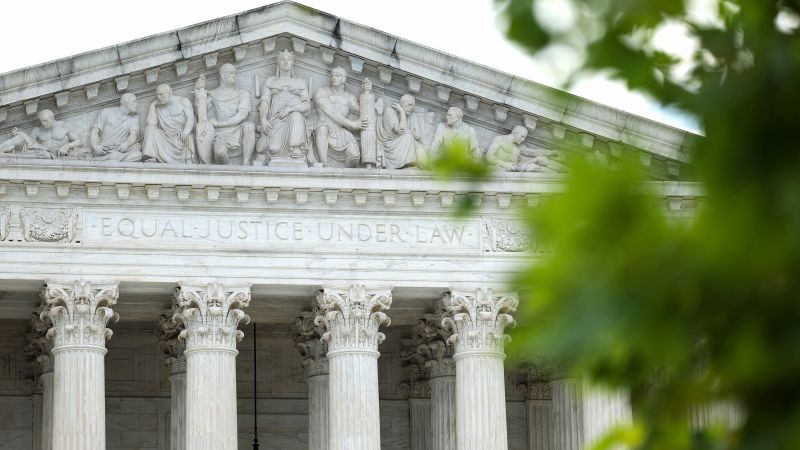A group of mostly White voters in Louisiana has filed a challenge with the Supreme Court against the proposed congressional districts, describing the map as “morally repugnant.” The map, drawn by state lawmakers, includes a second majority-Black district in the six-district congressional plan. A lower court ruled against the map, finding that its creation violated the Constitution’s equal protection clause. The second majority-Black district was added in response to a previous court ruling that found the earlier map, with only one majority-Black district, likely violated the Voting Rights Act due to discrimination against Black voters in Louisiana.
Louisiana’s mostly White voters argue that the new map is unacceptable and that it is a clear violation of constitutional rights. The case raises important questions about how race is considered when congressional boundaries are redrawn every ten years, with potential national implications and impacts on the balance of power in the US House, where Republicans currently hold a narrow majority. Louisiana officials and a group of Black voters have asked the Supreme Court to intervene and quickly resolve the dispute, as the state is left without a viable map for the upcoming election.
The state of Louisiana emphasized the urgency of the situation, stating that with only five days left until the date by which the Secretary of State needs to implement a congressional map for the 2024 elections, Louisiana is facing a serious problem with no solution in sight. The challenge to the map by the White voters dismissed the urgency as “oddly shrill” and suggested that lower courts have enough time to address the issue before the November election. The Supreme Court is expected to make a decision on whether to allow the map to be used on a temporary basis as early as this week.
The dispute over Louisiana’s congressional map is rooted in the redistricting process and the inclusion of a second majority-Black district in response to previous legal challenges. The concerns raised by White voters about the moral implications of the map highlight the deep-seated issues of race and representation in the political process. The outcome of this case could have significant implications for future redistricting efforts and the ways in which race is considered in drawing congressional boundaries across the country.
With the Supreme Court’s decision looming, the fate of Louisiana’s congressional map remains uncertain, with potential ramifications for the upcoming election and political representation in the state. The legal battle over the map reflects broader tensions around racial equity and equal representation in the redistricting process, underscoring the complexities and challenges of ensuring fair electoral practices. As the Supreme Court deliberates on the case, the outcome will be closely watched for its implications on voting rights, racial justice, and political power dynamics in Louisiana and beyond.


